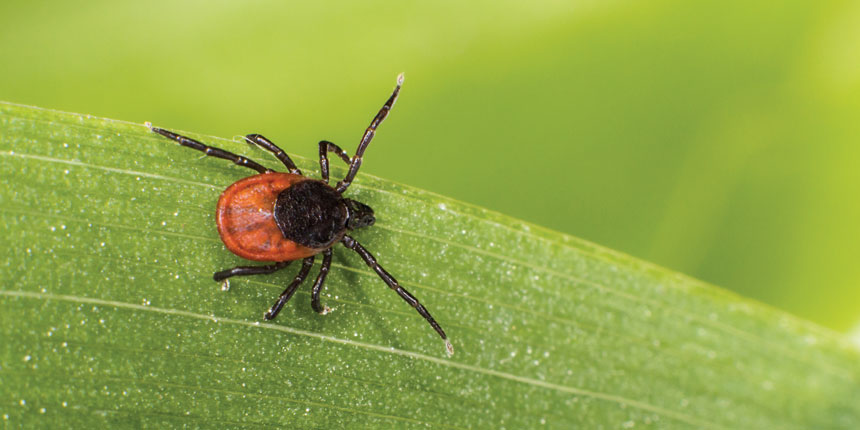Health+
What You Need to Know About Ticks

New tick-borne diseases are popping up in our area. Here’s what to look for.
Summer is peak tick season — when those small, wingless, bloodsucking insects come out of hiding, attach themselves to humans, pets and wildlife, and spread illnesses. The problem is only getting more complicated. Recently, the Northeast has seen a few tick-borne diseases new to the area.
New Concerns
“Our primary concerns are still the big three: Lyme disease, Anaplasmosis and Babesiosis,” explains Dr. Brian Cilley, an Internal Medicine and Infectious Disease Specialist at Southcoast Health. Symptoms for these common tick-borne illnesses include headache, muscle and joint pain, fatigue, fever, chills or rashes.
However, the doctor is keeping a close eye on Borrelia miyamotoi disease, which is related to Lyme disease and sometimes called hard tick relapsing fever. “I’ve seen a few cases in our area, but it’s difficult to diagnose, since tests are still under development and symptoms are so similar to Lyme disease,” Dr. Cilley says.
Those overlapping symptoms are flu-like, including fever, chills, fatigue, headache and body aches. One positive similarity between the two illnesses is that the antibiotic course prescribed for Lyme disease appears to also treat Borrelia miyamotoi.
Another condition mostly found in southern states has been spreading northward in recent years. It is called southern tick-associated rash illness, or STARI. There is no blood test for this illness, but “because it’s so similar to early Lyme disease, we typically treat STARI with oral antibiotics,” Dr. Cilley says.
Symptoms of STARI include a red, expanding rash around the tick bite site along with flu-like symptoms such as fatigue, fever, headache and muscle and joint pain.
Keep Ticks Away
Regardless of what region of the country you’re in this summer, Dr. Cilley offers the same advice to help prevent tick bites when enjoying time in wooded areas or shady grasslands, camping or hunting:
- Use an insect repellant with 20% to 30% DEET on skin and clothing.
- Treat clothing, outdoor gear and tents with a product that contains at least 0.5% permethrin. You can also purchase permethrin-treated clothing.
- Check yourself, your children and your pets daily for ticks.
- Consider using a pet-friendly tick-repellent for dogs.
See Your Doctor
The best way to keep a tick-borne illness from escalating is to see a doctor if you experience flu-like symptoms after being outdoors during spring or summer, Dr. Cilley says. “I can’t stress seasonality enough. In some cases, it’s our best clue that we’re not dealing with a routine flu virus.” 
Whether you need a primary care physician or infectious disease specialist, you can find a provider at southcoast.org/doctors. Find Southcoast Health Urgent Care locations at southcoast.org/urgentcare.
